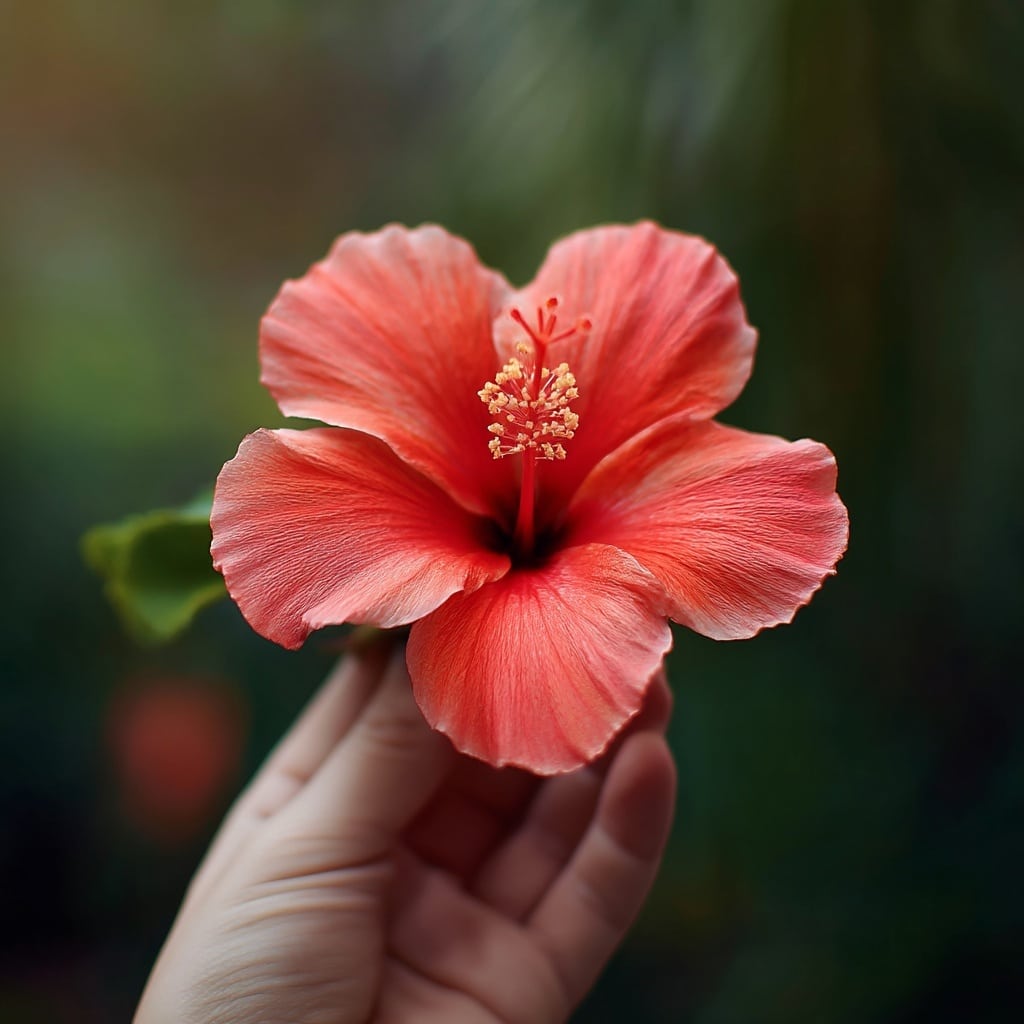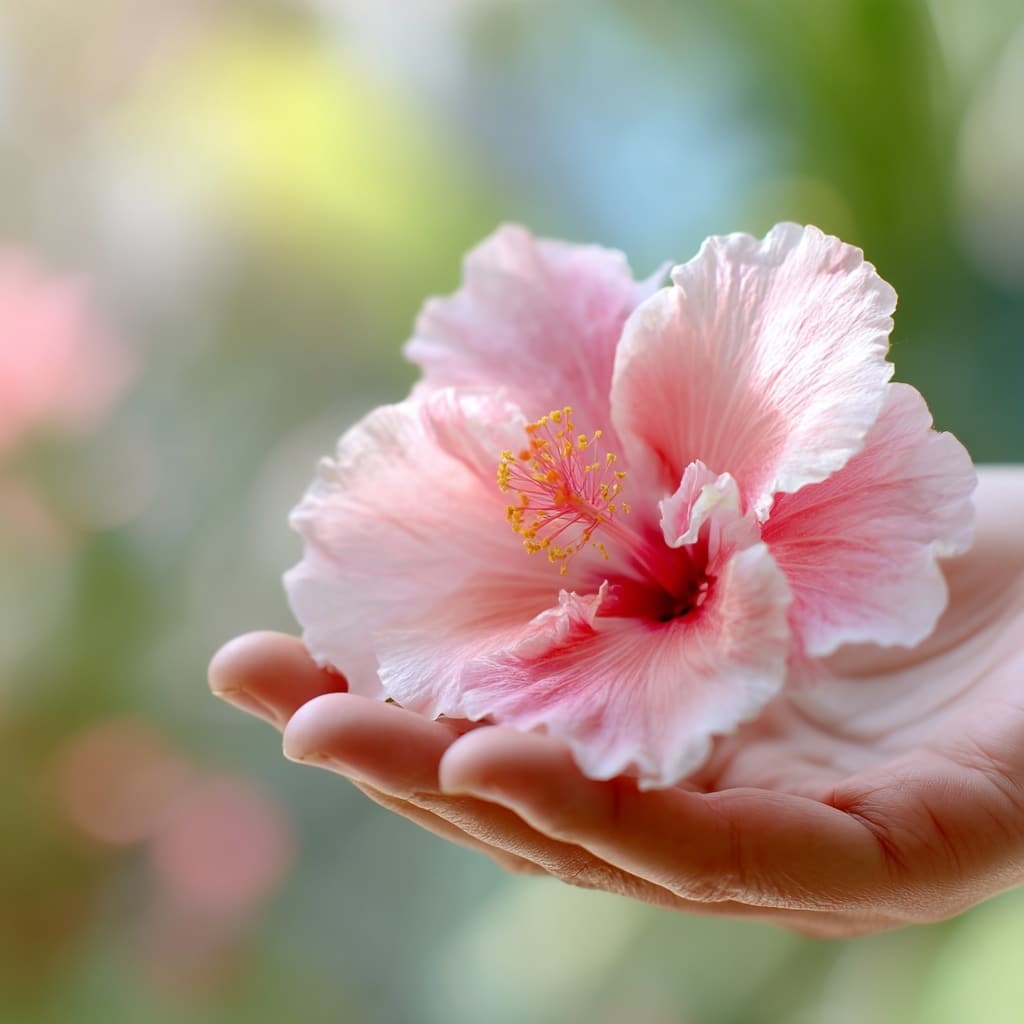The hibiscus flower is one of nature’s most striking tropical blooms, known not only for its bold beauty but also for its deep cultural significance around the world. Whether it’s flourishing in a sun-drenched garden or delicately tucked behind someone’s ear on a warm island breeze, the hibiscus has long been associated with grace, femininity, and fleeting beauty. But beyond its vibrant petals lies a rich story of symbolism, history, and botanical charm that continues to captivate gardeners and flower lovers alike.
In this guide, we’ll explore what makes the hibiscus flower so special—from what it symbolizes in different cultures to how you can grow and care for it in your own backyard. You’ll also learn how its color can alter its meaning, when it’s the perfect flower to gift, and why its popularity continues to blossom across generations.
Table of Contents
What Does the Hibiscus Flower Symbolize?
Across cultures and centuries, the hibiscus flower has taken on a variety of symbolic meanings. Though interpretations can vary depending on region and tradition, several themes appear again and again: femininity, beauty, and the transient nature of life.
In many cultures, the hibiscus is seen as a symbol of the perfect woman—elegant, nurturing, and radiant. In Hawaiian tradition, for instance, wearing a hibiscus flower behind the ear is a well-known custom that can signify whether someone is romantically available.
During the Victorian era, gifting a hibiscus bloom was a delicate way to compliment someone’s fragile and refined beauty—a subtle yet deeply romantic gesture. Meanwhile, in Chinese culture, the ephemeral nature of the hibiscus flower, which blooms beautifully but briefly, came to represent the fleeting beauty of fame or personal glory, for both men and women.
No matter where it appears, the hibiscus flower carries a message: beauty is powerful, but often short-lived. Its symbolism is a gentle reminder to cherish the present and honor the beauty around us—both in nature and in people.
Color Meanings of Hibiscus Flowers
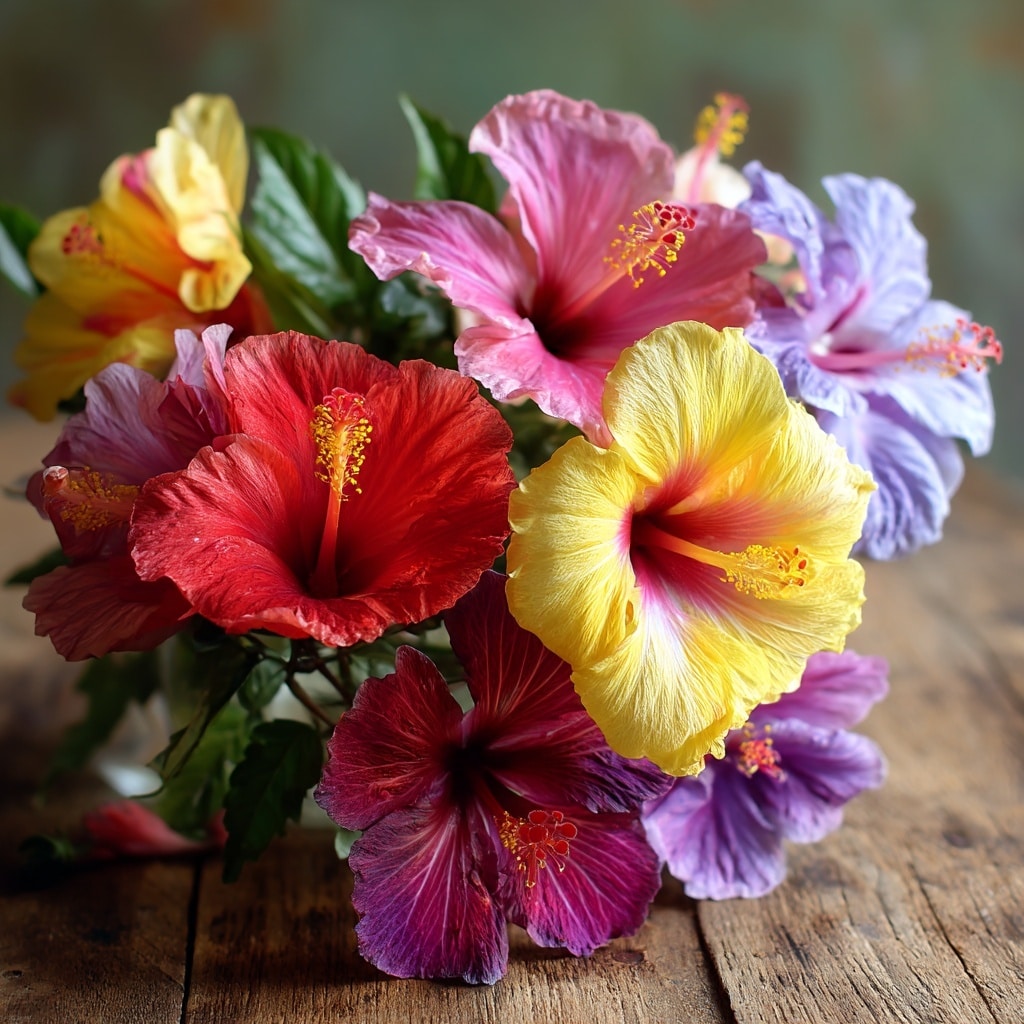
Just like roses or tulips, the meaning of a hibiscus flower can shift dramatically depending on its color. Each hue brings its own emotional weight, making color an important consideration whether you’re planting them in your garden or giving them as a gift.
🌞 Yellow Hibiscus
Bright and cheerful, yellow hibiscus flowers are symbols of joy, sunshine, and good fortune. They’re often associated with positive energy and are an excellent choice for celebrating friendships, new beginnings, or well wishes.
❤️ Red Hibiscus
Deep red hibiscus blooms are undeniably bold and passionate. They symbolize romantic love, desire, and intensity, making them a heartfelt gift for anniversaries or declarations of love.
🌸 Pink Hibiscus
Soft and versatile, pink hibiscus flowers represent gentle love, affection, and friendship. Unlike red, which leans toward romantic passion, pink expresses emotional warmth in all kinds of relationships.
💜 Purple Hibiscus
With its rare and regal tone, purple hibiscus is often linked to mystery, wisdom, and royalty. It’s a flower that conveys admiration and deep respect, perfect for honoring someone’s intellect or spiritual depth.
By choosing the right color, a hibiscus flower becomes more than just a beautiful bloom—it becomes a message tailored to the occasion and the recipient.
Does the Hibiscus Flower Have a Scent?
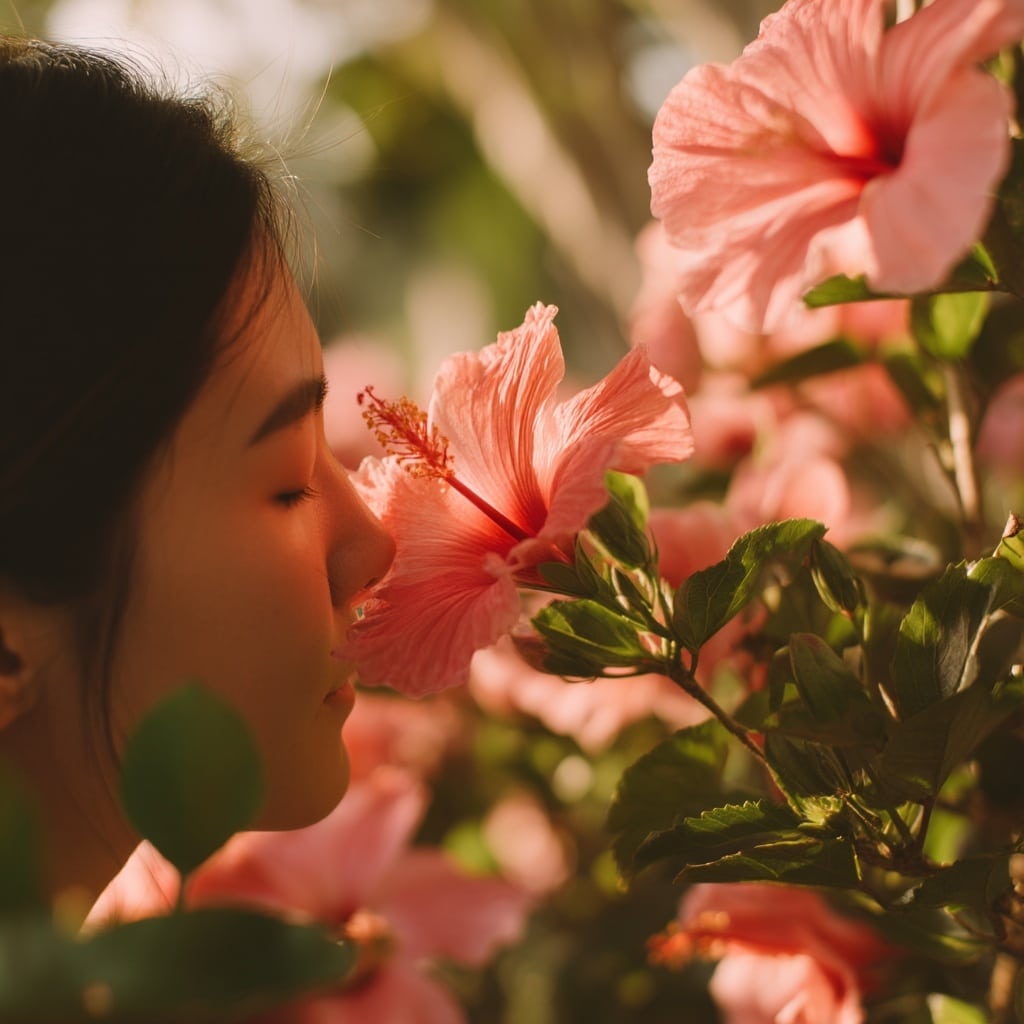
One of the most common questions about the hibiscus flower is whether it has a fragrance—and the answer might surprise you.
While hibiscus flowers are famous for their eye-catching colors and dramatic petals, most varieties are actually scentless. Unlike roses or gardenias, which are grown as much for their perfume as their beauty, the hibiscus focuses its charm on visual appeal rather than aroma.
That said, some hibiscus cultivars do have a light, subtle scent, especially when grown in warm, humid conditions. These lightly fragrant varieties are typically the exception, not the rule, and their scent is often described as faintly floral or slightly sweet.
So, if you’re hoping to grow hibiscus for its scent, it’s best to choose a variety known for its fragrance—but for most gardeners, the sheer visual impact of the hibiscus flower is more than enough.
A Brief History of the Hibiscus Flower
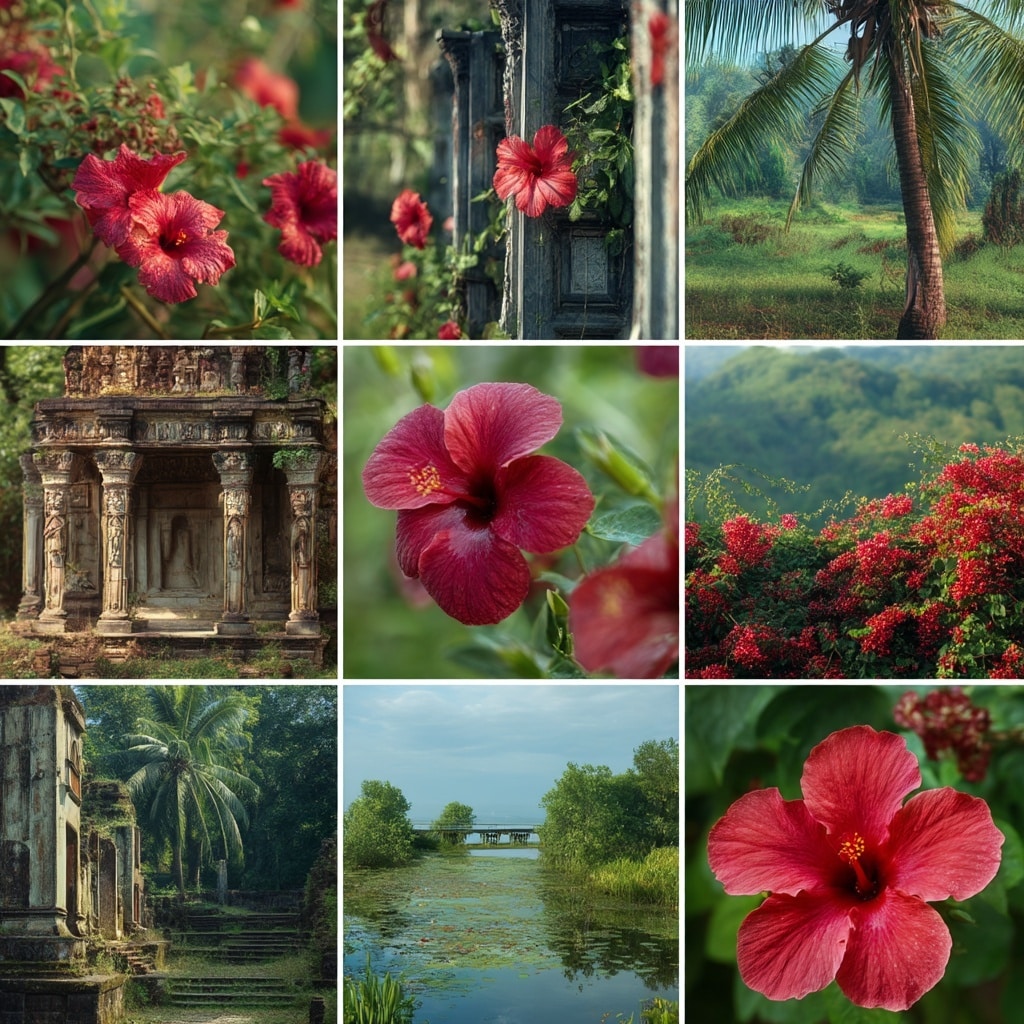
The hibiscus flower has a long and fascinating history that spans continents, cultures, and centuries. Native to warm tropical and subtropical regions, hibiscus plants are believed to have originated in areas like Hawaii, China, India, Fiji, Madagascar, and Mauritius.
Ancient varieties of hibiscus grew freely along the equator, where they evolved into different species depending on the climate and soil. Some botanists suggest that early Polynesians helped spread hibiscus across the Pacific during their long migrations, carrying seeds with them and planting them on different islands. These early plants eventually developed unique traits, adapting to their local environments over generations.
By the 1700s, hibiscus species were thriving naturally from the coasts of East Africa to the Hawaiian Islands. As these plants cross-pollinated and adapted, they gave rise to modern hybrids with larger blooms and a broader range of colors.
The real turning point came in the 20th century, when horticulturists in Hawaii began aggressively hybridizing hibiscus. Their work produced the vivid, multi-colored varieties we recognize today. Thanks to these efforts, the hibiscus flower became a popular ornamental plant around the world, especially in tropical gardens.
This global journey reflects what the hibiscus symbolizes so well: beauty that adapts, evolves, and continues to bloom.
How to Grow Hibiscus Successfully
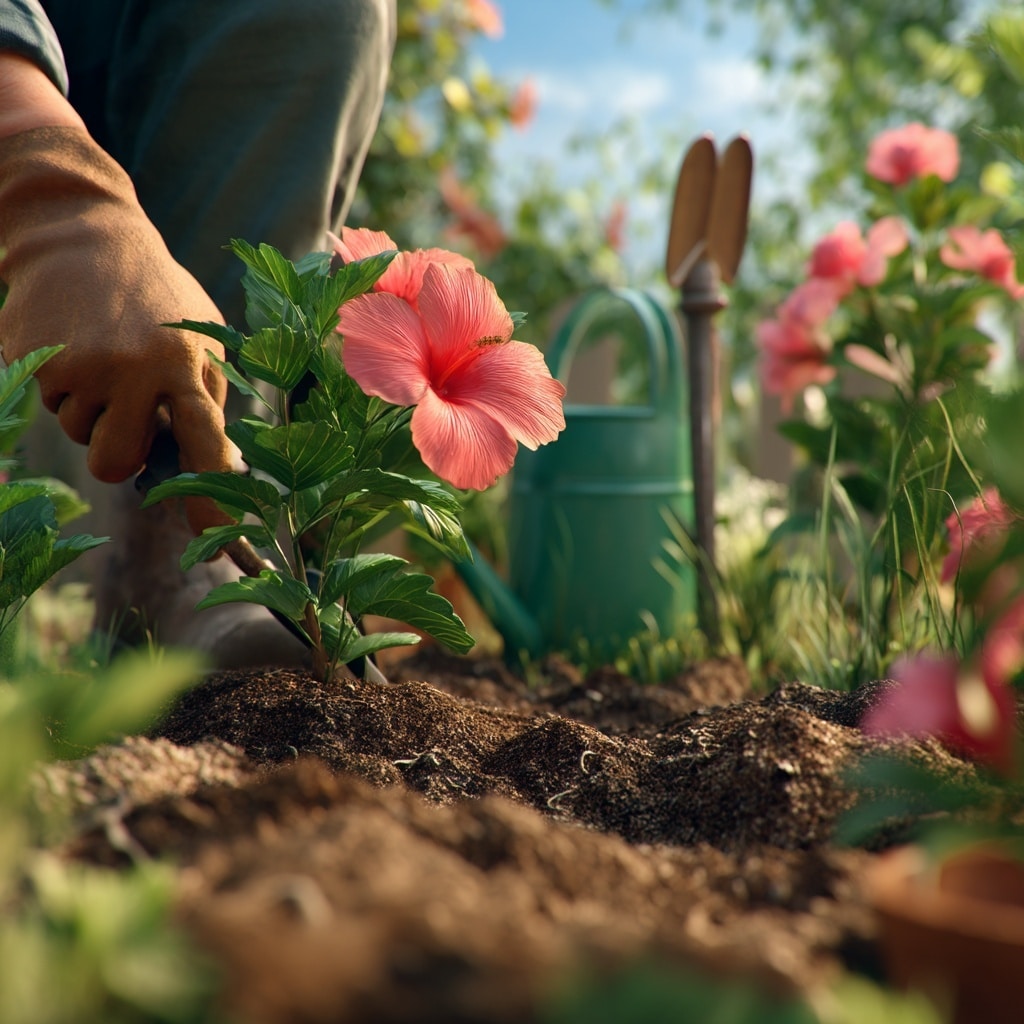
Growing a hibiscus flower at home can be incredibly rewarding—especially when those bold, tropical blooms begin to open. While hibiscus isn’t the most demanding plant, it does thrive best under certain conditions. Here’s what you need to know to help your hibiscus flourish:
☀️ Sunlight and Soil
Hibiscus plants love the sun. Full sunlight is ideal for strong growth and abundant blooms. Choose a spot in your garden that gets at least 6 hours of direct sunlight each day. When it comes to soil, hibiscus prefers moist, well-draining soil that’s rich in organic matter.
🌱 When to Plant
The best time to plant a hibiscus flower is in early spring, once nighttime temperatures consistently stay above 50°F (10°C). Planting in spring gives the roots time to establish before winter. Fall planting is riskier and may result in poor root development.
🛠️ Planting Tips
- Dig a hole twice as wide as the root ball but no deeper
- Gently remove the plant from its container
- Set it in the hole, backfill with soil, and press lightly
- Water thoroughly right after planting
💧 Watering Routine
For the first few weeks after planting, water every 2–3 days. Once established, water:
- Twice a week during the first growing season
- Once a week in the second season
Consistency is key—hibiscus flowers love moisture but hate soggy roots, so avoid overwatering or letting the soil dry out completely.
By creating the right conditions, you’ll set your hibiscus up for a long season of bold, tropical blooms.
Caring for Your Hibiscus Plants
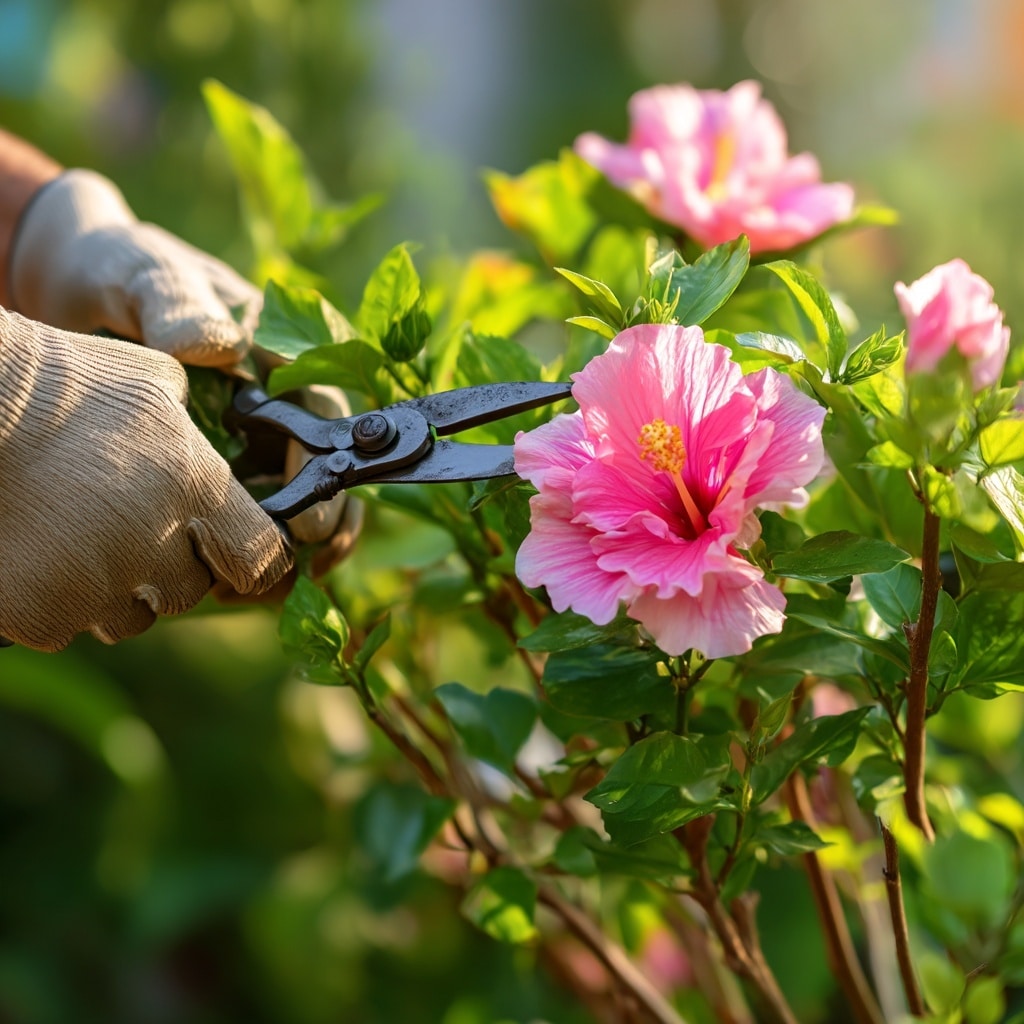
Once you’ve planted your hibiscus flower, ongoing care is essential to keep it blooming beautifully. While hibiscus isn’t high-maintenance, it does require consistent attention, especially during the growing season.
✂️ Pruning and Maintenance
Light pruning in early spring helps shape the plant and encourages new growth. Remove any dead or weak branches and trim back overgrowth to allow better airflow. Avoid heavy pruning during blooming season, as this can reduce the number of flowers.
🧴 Fertilizing Tips
Feed your hibiscus flower every two weeks during the growing season (spring through early fall) with a balanced, water-soluble fertilizer. Look for one with low phosphorus (the middle number) and slightly higher potassium to promote flowering.
- Ideal ratio: 10-4-12 or similar
- Avoid high-nitrogen fertilizers—they promote leaf growth, not blooms
🌿 Pests and Problems
Hibiscus is vulnerable to pests like aphids, whiteflies, and spider mites. Use insecticidal soap or neem oil if you notice any signs of infestation. Watch for yellowing leaves, which can indicate overwatering, poor drainage, or nutrient imbalance.
💐 Extending Bloom Life (Cut Flowers)
If you’re cutting hibiscus flowers to use in arrangements:
- Harvest early in the morning
- Keep them cool and away from direct sun
- Store in the fridge to slow wilting
- Note: Hibiscus blooms typically last only a day, even with care
Proper care keeps your hibiscus flower healthy, vibrant, and blooming through the season.
Perfect Occasions to Gift a Hibiscus Flower
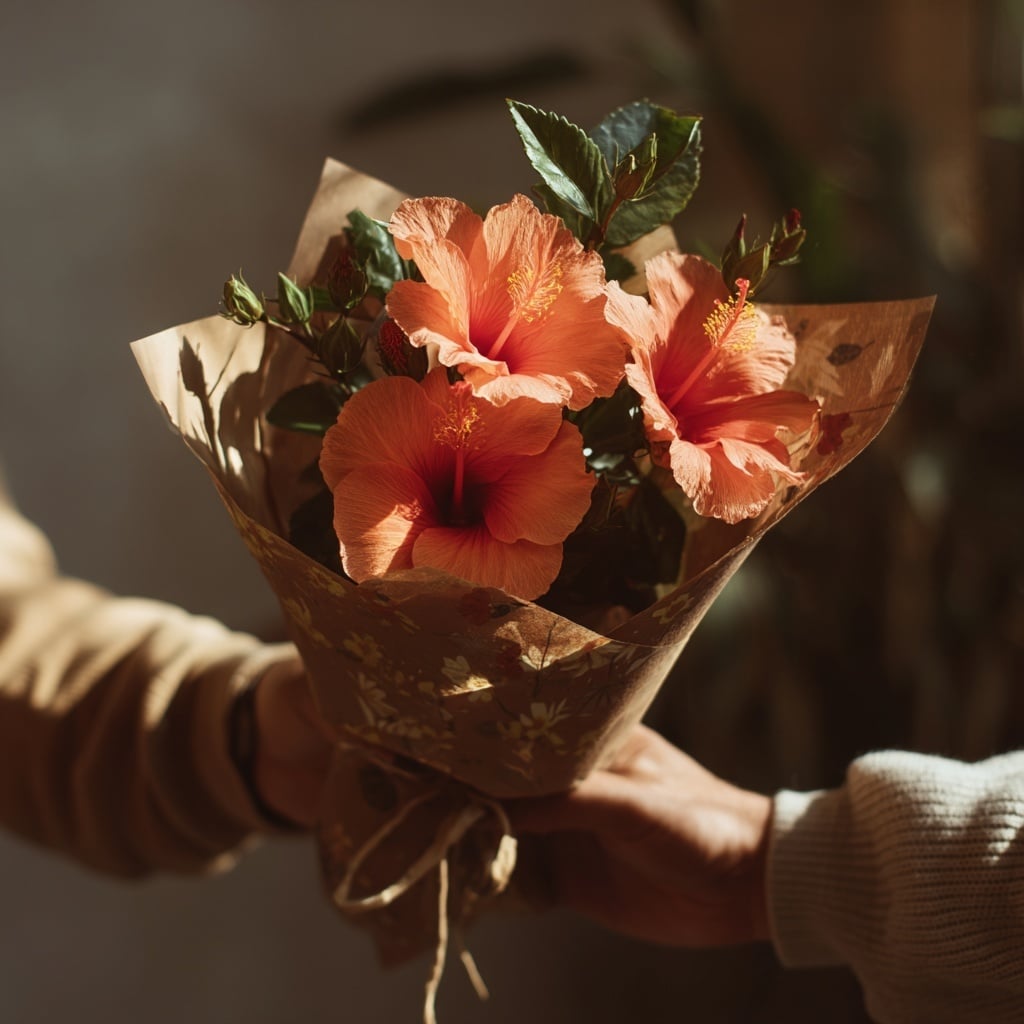
Thanks to its rich symbolism and bold appearance, the hibiscus flower makes a thoughtful and meaningful gift—especially when the occasion calls for beauty, warmth, or heartfelt emotion.
❤️ Romantic Gestures
Because red and pink hibiscus flowers represent love and affection, they’re ideal for romantic milestones. Consider gifting a hibiscus to your partner on an anniversary, date night, or even as a spontaneous show of love.
🏖️ Summer Celebrations
The tropical vibe of the hibiscus flower makes it a festive addition to summer parties, birthdays, or garden gatherings. Its bright colors capture the joy of the season and bring energy to any celebration.
🌺 Friendship & Appreciation
A yellow or pink hibiscus flower is a lovely way to show gratitude, friendship, or emotional support. Whether you’re thanking a neighbor or cheering up a loved one, hibiscus sends a warm and thoughtful message.
🎁 Potted Gifts for Plant Lovers
For friends with green thumbs, a potted hibiscus plant can be a lasting gift that keeps blooming year after year. It’s a great way to combine beauty with meaning, especially for housewarmings or special occasions.
Whether you’re saying “I love you” or simply spreading sunshine, the hibiscus flower delivers your message in the most vibrant way possible.
Conclusion
The hibiscus flower is more than just a tropical beauty—it’s a symbol rich in meaning, history, and cultural significance. Whether you’re planting it in your garden, gifting it to someone special, or simply admiring its vibrant colors, hibiscus reminds us of the delicate, fleeting beauty that makes life worth celebrating.
From love and friendship to mystery and joy, each color of the hibiscus tells its own story. And with just a little care and sunshine, this striking flower can brighten your home and heart for seasons to come.

